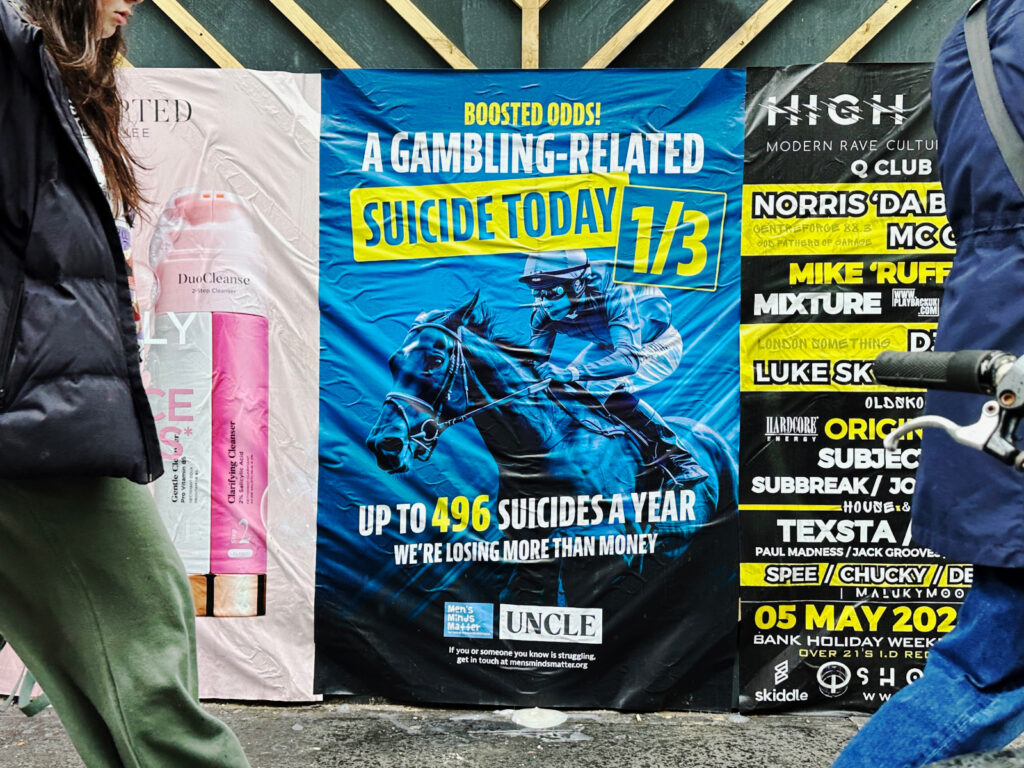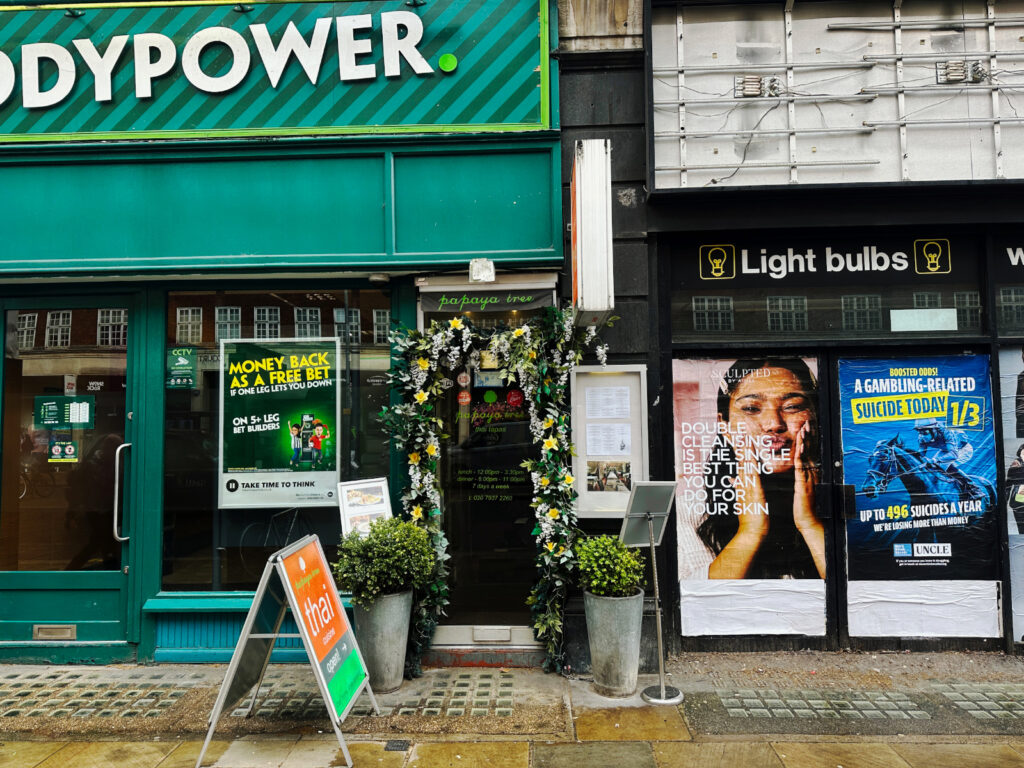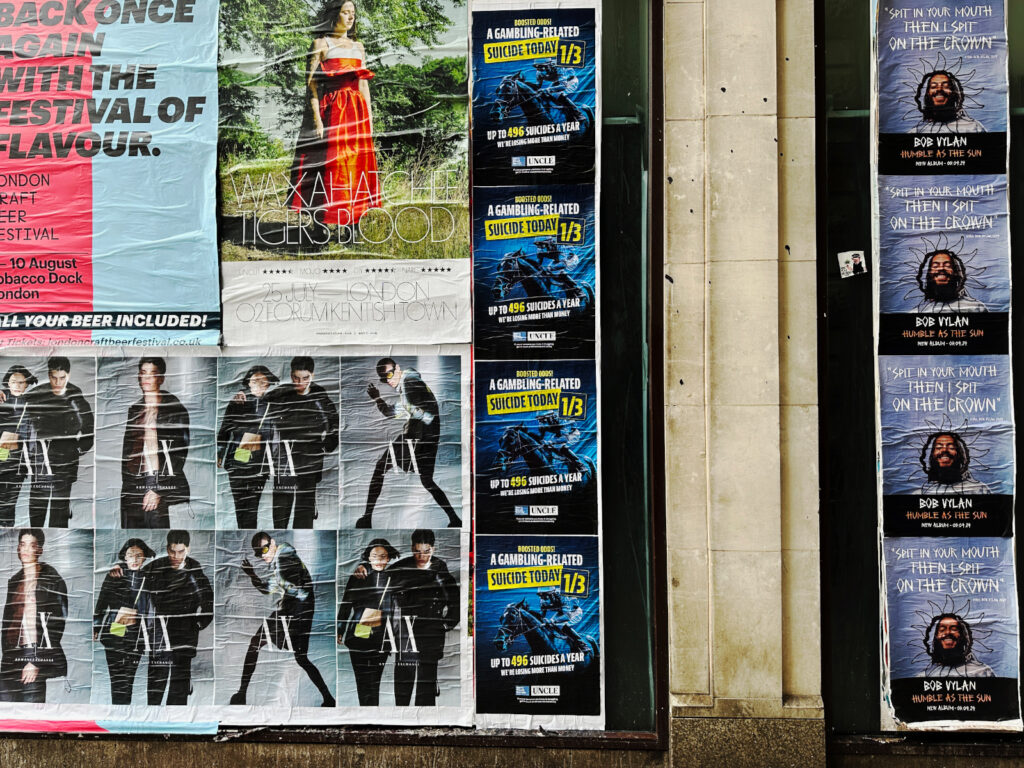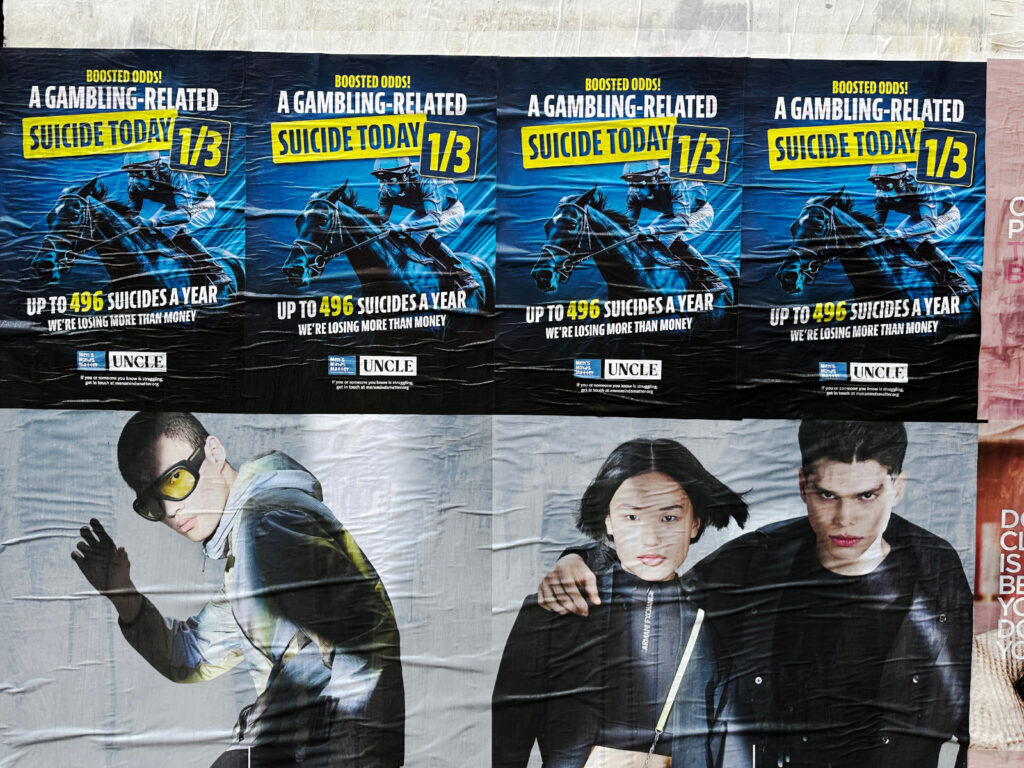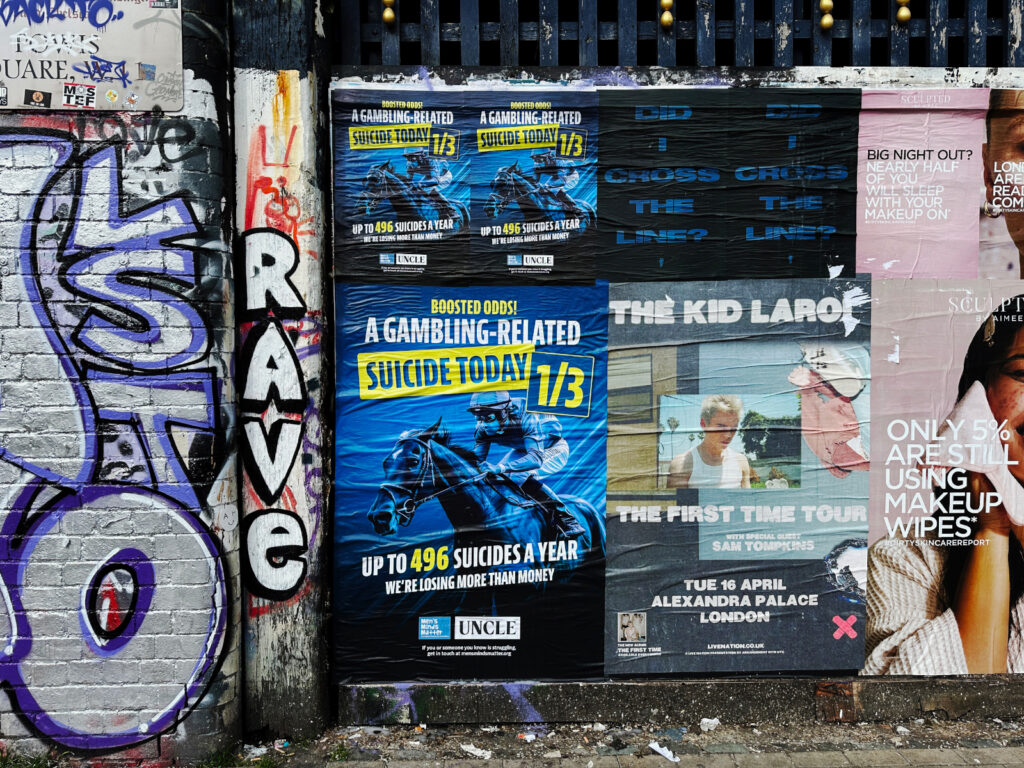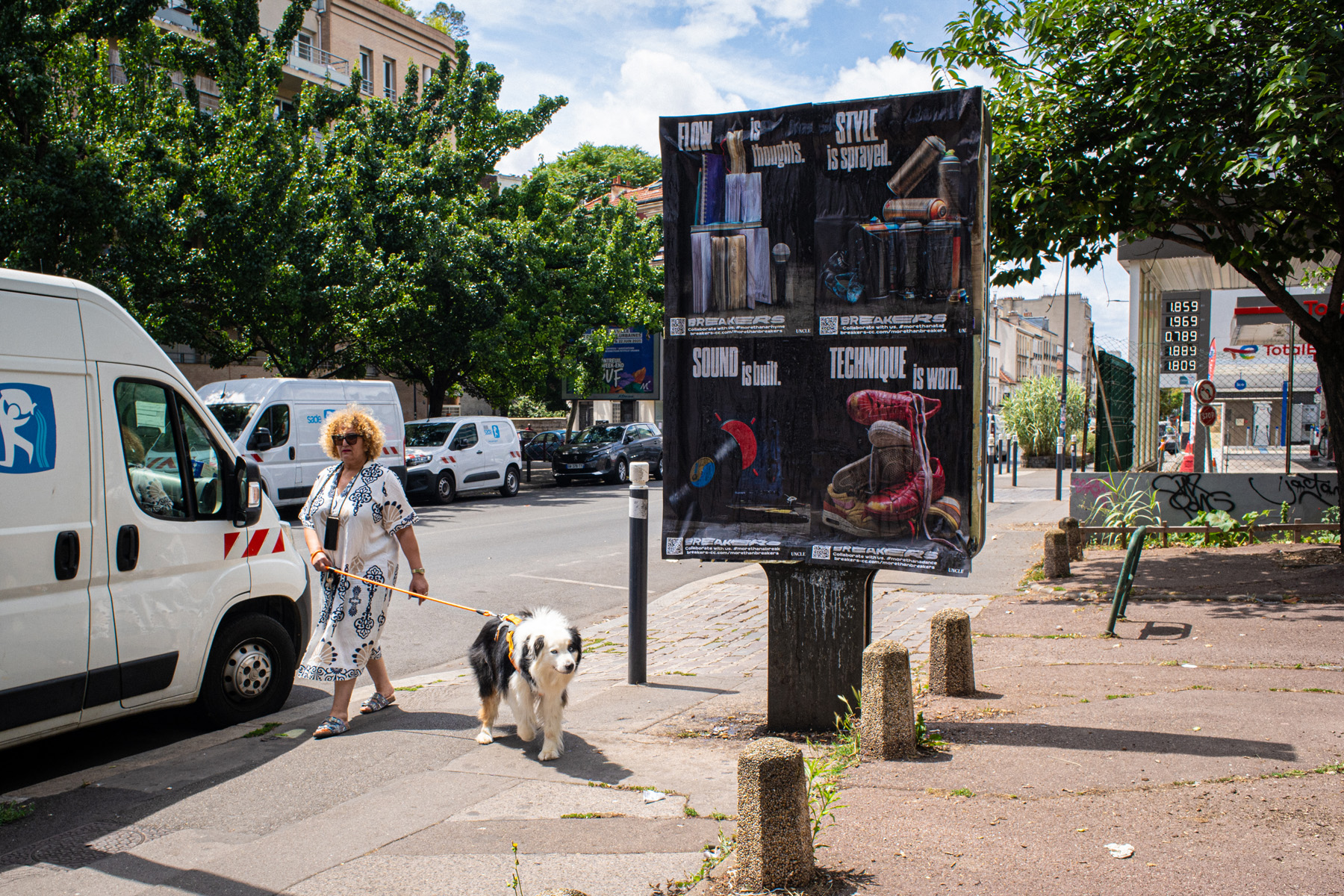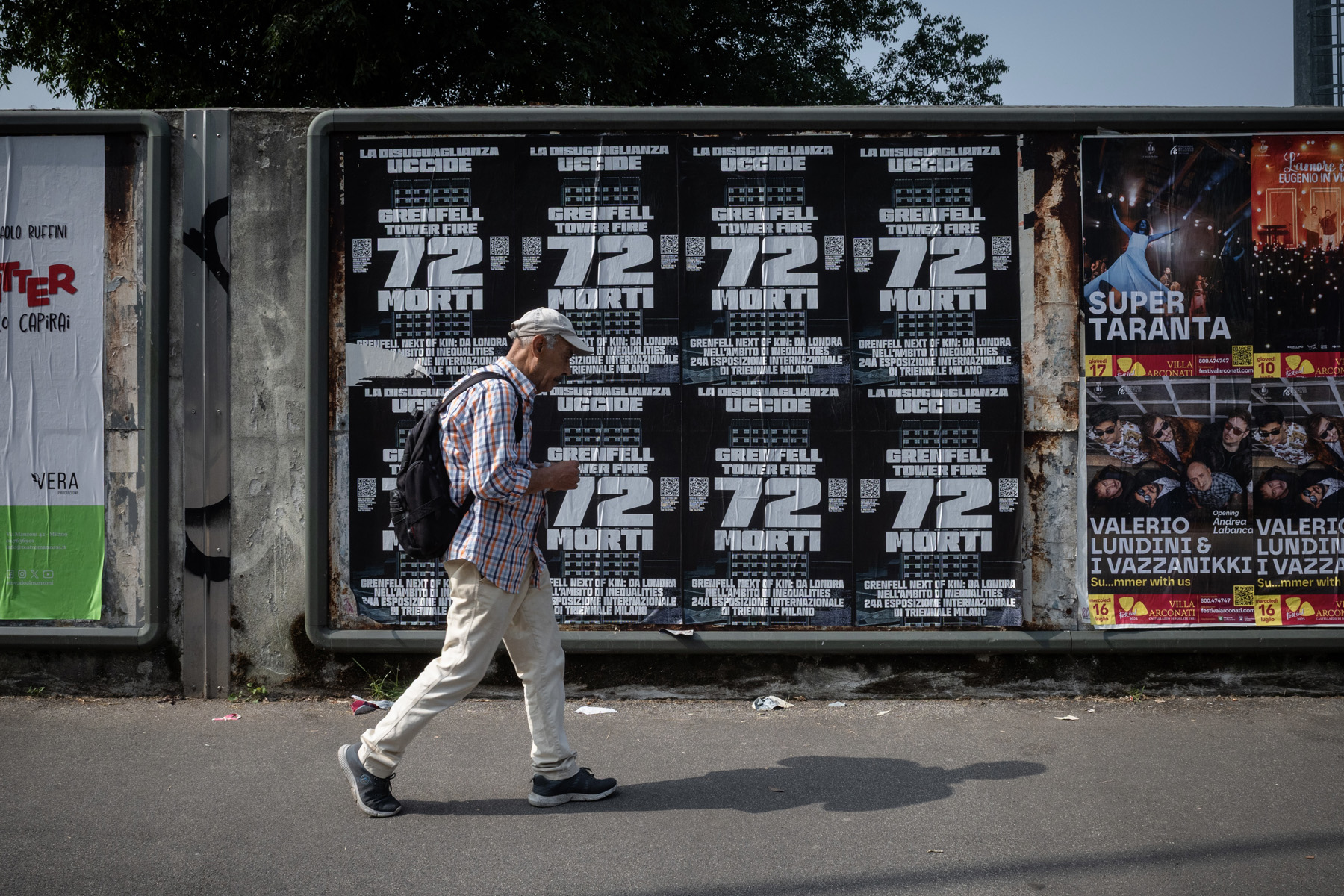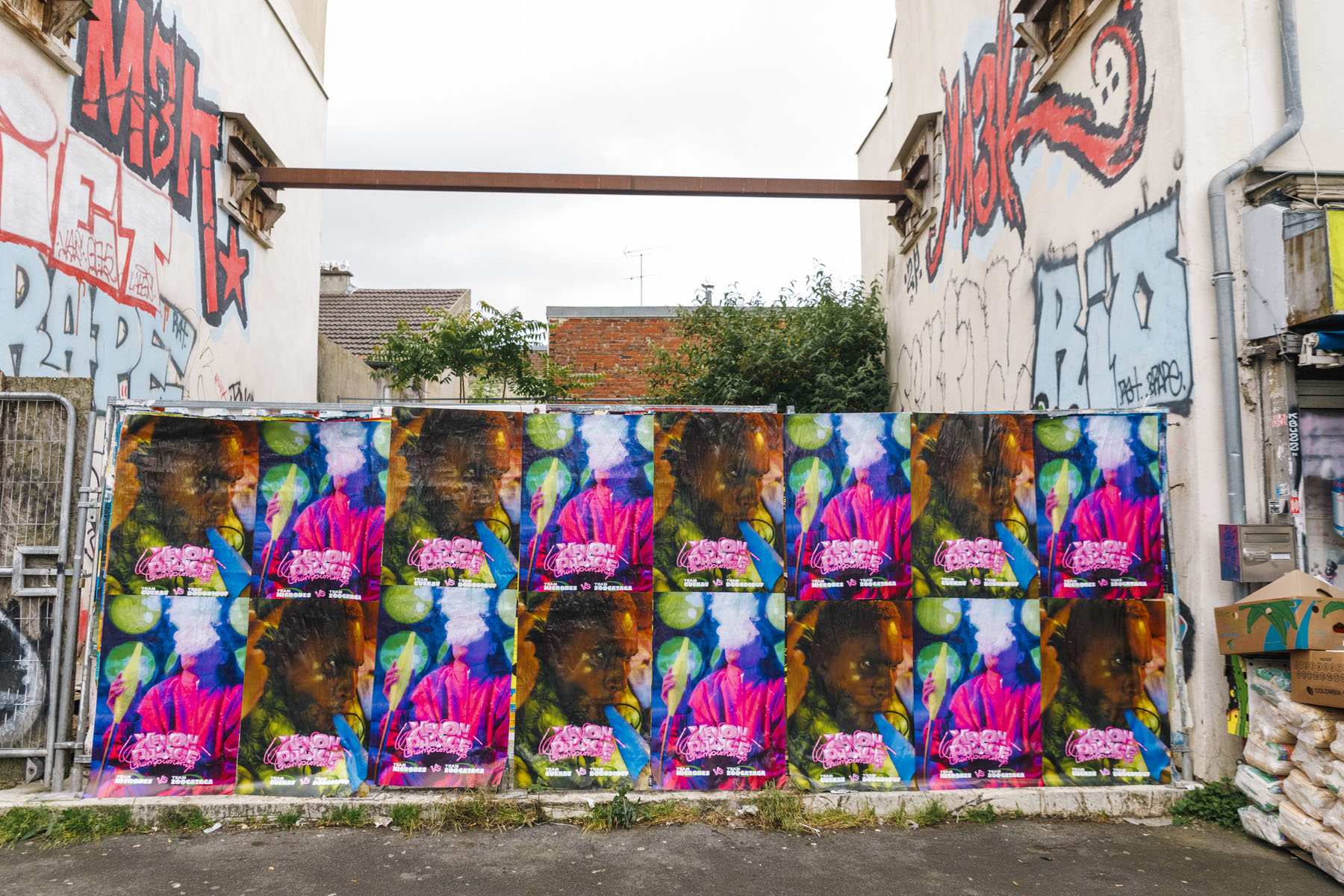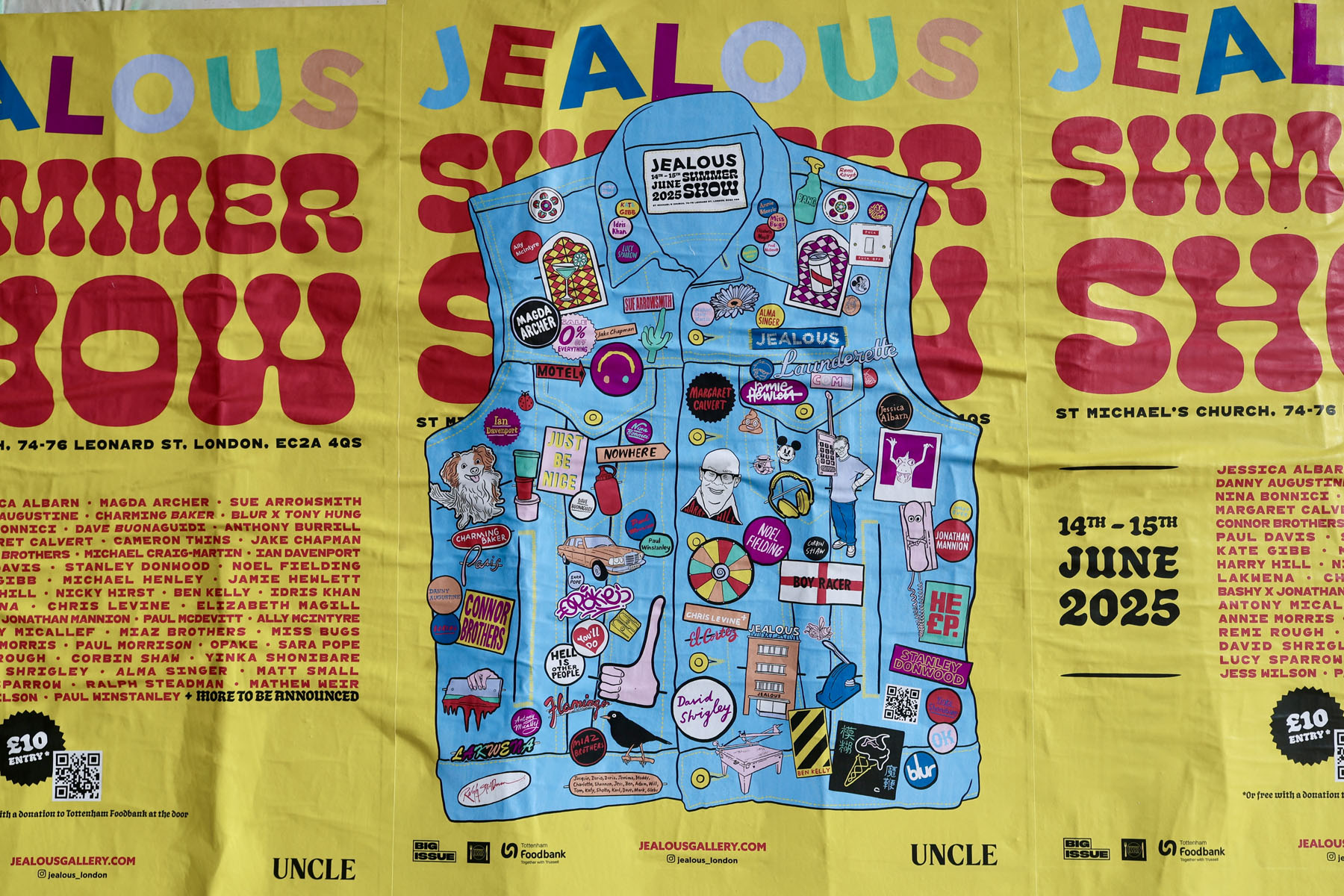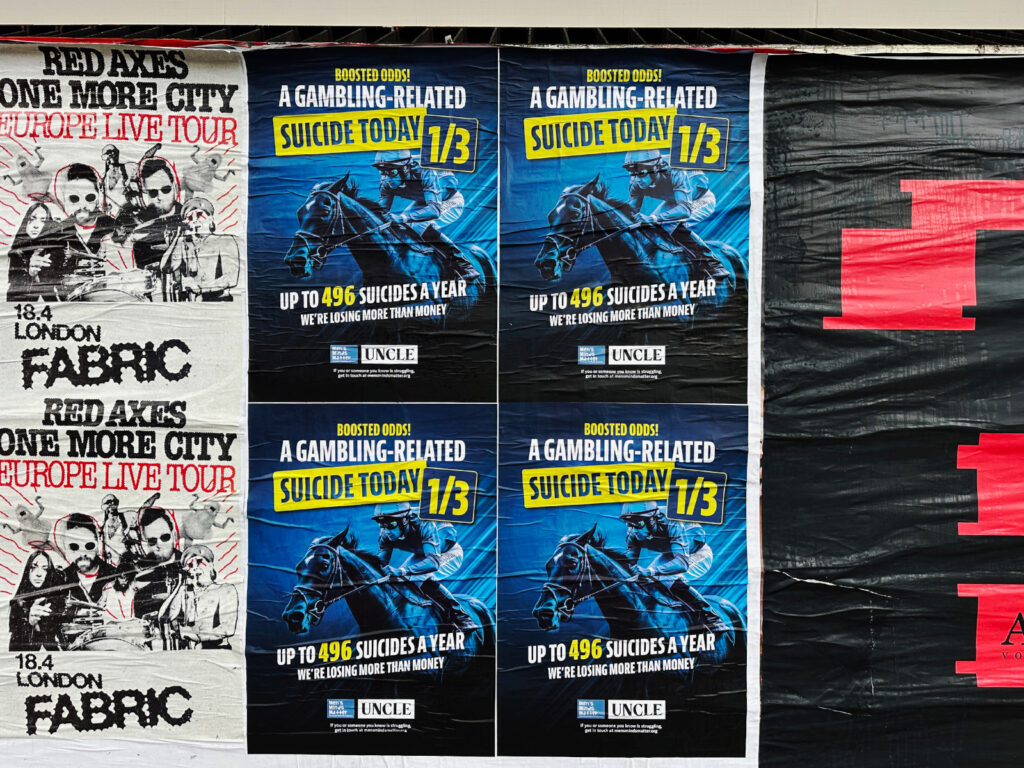
Men’s Minds Matter has launched ‘We’re Losing More Than Money’ coinciding with the Grand National weekend in order to highlight the distinct link between gambling and suicide rates amongst men. The campaign ran in conjunction with one of the most significant betting events in the UK to maximise the impact of the subject matter. UNCLE partnered with the charity without hesitation to spread the message by flyposting across London during the period of the event.
Men’s Minds Matter themselves, are a suicide prevention and intervention organization, targets the disproportionate number of suicides by men in the UK, recognizing the wide-reaching effects of men’s mental health issues on society. Their innovative approach model has already been integrated into parts of the NHS and it aims to save lives.
The team over at Men’s Minds Matter spoke with UNCLE to unveil the deeper message behind the poster that takes on the form of a betting odds advertisement.
WHAT IS THE SIGNIFICANCE OF LAUNCHING THE CAMPAIGN DURING THE GRAND NATIONAL, THE UK’S BIGGEST BETTING EVENT?
Hundreds of millions of pounds will be gambled on Saturday – and most of us will be seeing hundreds of adverts for betting companies this week. More than ever will be staked – and more than ever likely lost. This is obviously a tough time for people struggling with addiction, but also an opportunity for everyone to revaluate how we see gambling.
The innovations in the way bookmakers take our money has not been caught up with in the way we help problem gamblers. We think it’s time for that to change.
WHERE DID THE SLOGAN “WE’RE LOSING MORE THAN MONEY” COME FROM?
The concept of ‘losing’ in gambling is often only thought of in a financial context. But this is only a small part of it. If you are living with a gambling problem – you lose way more. Free time, personal relationships, the enjoyment of watching your favourite sport on TV. And ultimately, sadly, in some cases your life. Financial issues play a massive part in the strain gambling puts on people’s lives – but there’s a much wider picture that often isn’t considered.
HOW DOES THE CAMPAIGN CHALLENGE THE SOCIETAL PERCEPTION OF MASCULINITY AND ITS RELATIONSHIP WITH GAMBLING?
Problem gambling is on the up in women, but still remains a mostly male problem. There’s a strong link to masculinity in terms of trying to appear more confident. Men tend to be more impulsive and in certain environments – like watching sport, in pubs, or obviously at casinos – there’s an appealing status that comes with the appearance of being open to risk, and ‘one of the lads’.
All of this links back to the idea of what a man should be, and how they should act. Any behaviour of this sort ultimately hurts men – and is a perspective worth changing.
WHAT LONG-TERM GOALS DOES THE CAMPAIGN HAVE?
There have been many great campaigns and campaigners aiming to get society to change the way we all view the betting industry – from Gambling with Lives, to Paul Merson. Of course we would back greater regulation in gambling advertising, but socially we strive to create a more supportive environment for all problem gamblers. One that encourages them to seek support, and encourages others to treat them with more sympathy. It can be an invisible problem. And even when it is visible – it’s easy for it to be brushed off by groups of friends, often even being seen as just a bit of a laugh.
IF EVERYONE COULD TAKE AWAY ONE THING FROM THE CAMPAIGN, WHAT WOULD YOU HOPE FOR?
That despite what betting company ads look like, gambling is not just a game. Of course for the vast majority of people, a flutter here and there will cause no problems. But the invasive nature of gambling – from constant advertising to the ‘casino in your pocket’ that is your smartphone – means it’s a slippery slope. If more people know this, more people will be caught before it’s too late.
HOW CAN PEOPLE SUPPORT THIS CAMPAIGN?
Of course, share it. But also think about your mates more. So many friendship groups have someone who gambles – even if not with a problem. Many of us will be guilty of encouraging our mates to have a flutter, whether that’s directly or just by making light of losses. We just want people to think about what’s going on beneath the surface.
WHAT WORK DOES THE ORGANISATION DO IN LONDON?
Dr Luke Sullivan developed the model of psychological entrapment relating to suicidal crisis while working as a NHS clinical psychologist in South London for over a decade. We also collaborate with the West End stage production Magic Mike Live!
WHAT ROLE HAS THE CITY PLAYED IN THE DEVELOPMENT OF MEN’S MINDS MATTER?
City living can present its own unique challenges to people’s mental health and wellbeing, so being based in London means we’re perfectly placed to help a wide range of people. It provides many opportunities for growth and partnerships – from campaigns like this, to our work with Magic Mike Live.
HOW CAN PEOPLE SUPPORT THE CAUSE?
We’re always looking for more volunteers and fundraisers. If you have skills that can help us, or an interest in suicide prevention – get in touch.
WHAT WORK HAS THE ORGANISATION BEEN MOST PROUD OF?
Our first big marketing campaign – ‘If you think something’s up, bring it up’. We took the real last messages sent by men before they took their own life, and put them on billboards across the country. It was a privilege to tell the stories of three bereaved families – and we’re so grateful for their passion in stopping more families from experiencing the same.
The campaign has won and been nominated for awards, and really changed the trajectory of our organisation.
